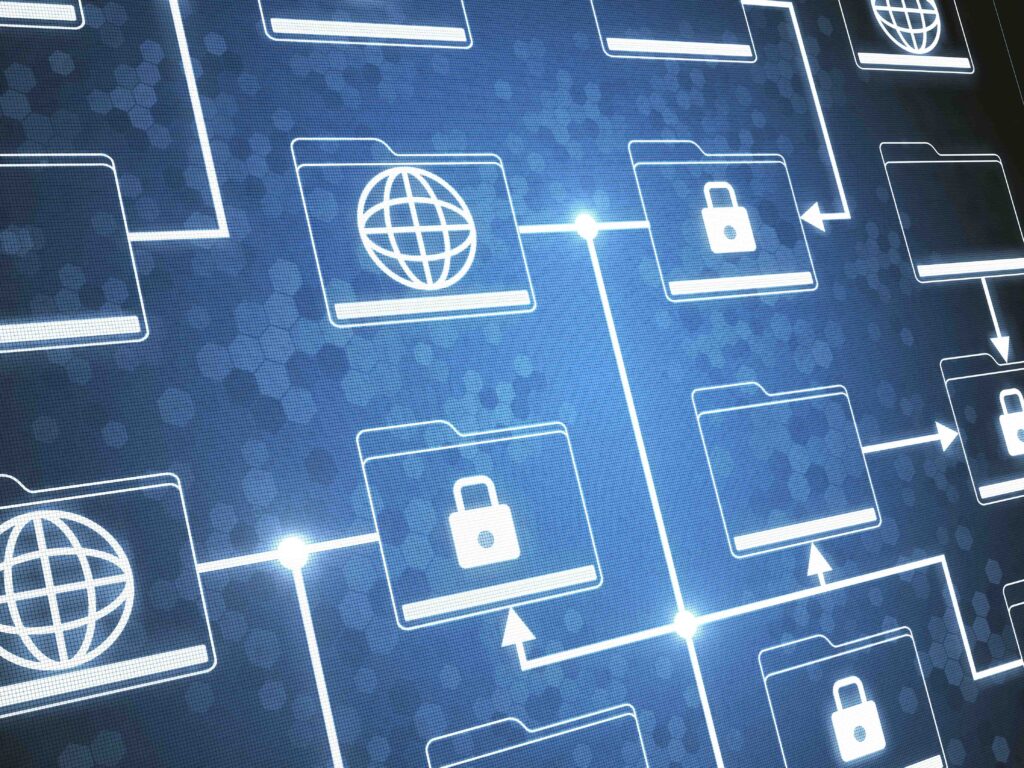LetŌĆÖs be honestŌĆöwhen most folks hear ŌĆ£blockchain,ŌĆØ they either think of Bitcoin billionaires or that one cousin who tried to convince them to buy NFTs shaped like cartoon lobsters.┬Ā
But what if we told you that blockchain has been quietly gearing up to play a much more heroic role? One where itŌĆÖs not just trading coins but helping protect your business from cyber villains?┬Ā
Yup, blockchain is stepping into the cybersecurity arenaŌĆöand itŌĆÖs wearing a very shiny cape.┬Ā
┬Ā

Quick refresher: Blockchain is a decentralized digital ledger that stores data in a way thatŌĆÖs transparent, immutable (read: unchangeable), and secure. Each ŌĆ£blockŌĆØ contains data, and once itŌĆÖs added to the ŌĆ£chain,ŌĆØ itŌĆÖs locked in place like a LEGO brick dipped in superglue.┬Ā
No single person or entity controls the chain. ThatŌĆÖs the secret sauceŌĆöbecause decentralization = fewer single points of failure = a harder time for┬Āhackers.┬Ā
Now letŌĆÖs talk about how this tech, originally designed for decentralized currency, is now becoming a firewallŌĆÖs best friend.┬Ā
 ¤öÉ 1. Data Integrity Like Never Before┬Ā
¤öÉ 1. Data Integrity Like Never Before┬Ā
In traditional databases, data can be tampered withŌĆöby rogue insiders, malware, or sheer human error. But with blockchain, data is locked into a timeline. Every change or addition is timestamped and verified by a consensus protocol.┬Ā
This means:┬Ā
- No shady edits┬Ā
- No data deletion without a trace┬Ā
- No “Oops, someone accidentally rewrote our customer list with their grocery order”┬Ā
In short, blockchain offers tamper-proof auditing on steroids.┬Ā
¤¦æŌĆŹ¤Æ╗ 2. Say Goodbye to Centralized Honeypots┬Ā
Centralized servers are juicy targets for cybercriminals. One breach, and boomŌĆömillions of records spill out like a data pi├▒ata.┬Ā
Blockchain flips the model:┬Ā
- No central server = no central point to attack.┬Ā
- Distributed ledger = data lives in multiple places at once, making it tougher to take down.┬Ā
The result? A system thatŌĆÖs a lot harder to crack. Even if attackers manage to access one node, they can’t change the data unless they control over 50% of the network. ThatŌĆÖs like trying to change the rules of Monopoly while everyone else is watching. Good luck with that.┬Ā


LetŌĆÖs face it: password-based systems are the digital equivalent of putting a ŌĆ£Do Not EnterŌĆØ sign on a cookie jar.┬ĀBlockchain-based identity systems can eliminate the need for passwords altogether, replacing them with:┬Ā
- Decentralized identifiers (DIDs)┬Ā
- Smart contracts that verify access without revealing private data┬Ā
That means:┬Ā
- No more reused passwords┬Ā
- No more post-it notes under keyboards┬Ā
- No more ŌĆ£Password123ŌĆØ admin accounts┬Ā
Users get control over their digital identities, and companies get a lot fewer headaches from credential stuffing attacks.┬Ā ┬Ā ┬Ā┬Ā
┬Ā ┬Ā

Imagine this: A piece of code that automatically responds to┬Ācybersecurity┬Āthreats the moment they happen. No waiting for a sleepy sysadmin to notice an alert buried in a dashboard.┬Ā
ThatŌĆÖs the magic of smart contractsŌĆöself-executing code that can:┬Ā
- Trigger alerts┬Ā
- Lock down systems┬Ā
- Revoke access┬Ā
- Roll back transactions┬Ā
All without human intervention.┬Ā
Blockchain + smart contracts = cybersecurity automation with built-in trust and transparency.┬Ā
┬Ā

Strange sentence, we know. But hear us out.┬Ā
Blockchain allows multiple parties to work together without needing to trust each other. Whether it’s sharing threat intel, validating software updates, or confirming device identities on a supply chainŌĆöblockchain creates a self-sustained environment where proof replaces promises.┬Ā
So even if youŌĆÖre dealing with new vendors or third-party partners, the system itself guarantees everyone plays by the same rules.┬Ā
 But… Is Blockchain the Silver Bullet?
But… Is Blockchain the Silver Bullet?
LetŌĆÖs keep it real: Blockchain isnŌĆÖt a cybersecurity cure-all. ItŌĆÖs a powerful toolŌĆöbut not a replacement for:
- Strong encryption
- Employee training
- Firewall rules that donŌĆÖt allow ŌĆ£any-to-anyŌĆØ
It also comes with challenges:
- Scalability issues
- Energy consumption (depending on the network)
- Regulatory uncertainty in some areas
So no, itŌĆÖs not going to fix your weak Wi-Fi password or stop Gary from clicking that ŌĆ£You won a MacBook!ŌĆØ email. But when layered into your security architecture, blockchain can be a game-changer.
BlockchainŌĆÖs Got PotentialŌĆöDonŌĆÖt Sleep on It
If you’re a forward-thinking business looking to step up your cybersecurity game, it might be time to think beyond firewalls and antivirus software.
Blockchain brings:
- Transparency
- Tamper-proof records
- Stronger identity controls
- Automated threat responses
So whether youŌĆÖre protecting sensitive data, managing digital identities, or trying to create a more secure supply chain, blockchain could be the ally you didnŌĆÖt know you needed.
Thought to Leave You With:
Blockchain is like that quiet intern who started out handling spreadsheets and now runs the whole department. Underestimate it at your own risk.
Want help exploring how blockchain could fit into your business security strategy? Reach outŌĆöwe promise not to say ŌĆ£HODLŌĆØ unless you ask. Consult with our team and gain actionable insights tailored to your organizationŌĆÖs unique needs. If you havenŌĆÖt by now, click the button below to schedule your 15-minute call.









